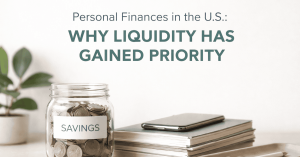Debt can weigh heavily on your financial life, affecting both your credit score and peace of mind. For many Americans, the burden of multiple loans or high-interest debts becomes overwhelming, making it difficult to regain control of their finances.
Debt consolidation loans offer a solution, allowing you to combine various debts into a single payment with better terms. But with countless lenders and loan options available in the US, how do you choose the best loan for debt consolidation? This guide will help you navigate through the process, providing insight into the factors to consider when selecting the best option for your situation.
Debt consolidation loans: what you need to know

Consolidating your debts can seem like an appealing option, but before diving into the process, it’s essential to understand how these loans work and what benefits they offer. A debt consolidation loan combines all your debts into a single loan with one monthly payment, ideally at a lower interest rate.
This approach simplifies your financial management, reducing the risk of missing payments or paying multiple fees. However, selecting the right loan for your needs involves much more than finding a low-interest rate.
Understand your financial situation before applying
Before applying for any loan, it’s critical to have a clear picture of your financial standing. Start by reviewing your debts—how much do you owe, to whom, and what interest rates are you currently paying? By understanding your current obligations, you’ll be better equipped to determine if a debt consolidation loan is truly the best solution.
In addition, you’ll need to review your credit score. Lenders typically offer the best terms to borrowers with higher credit scores. If your score is less than ideal, you might still qualify for a loan, but it’s important to manage your expectations about the interest rates you’ll receive. Having a lower score might mean you pay more in interest than you anticipated, which can defeat the purpose of debt consolidation.
Lastly, calculate your debt-to-income ratio (DTI). Lenders use this figure to assess whether you can comfortably afford new loan payments. A high DTI can signal to lenders that you may struggle to repay the loan, so aim to keep this ratio below 36%. If your DTI is higher, consider focusing on reducing your debts before applying for a consolidation loan to improve your chances of securing favorable terms.
Types of debt consolidation loans
Choosing the best loan for consolidating your debts means understanding the different types of loans available. Each option has its advantages and disadvantages, depending on your unique situation.
- Secured loans: These loans require you to offer collateral, such as your home or car, to secure the loan. Secured loans typically have lower interest rates, making them an attractive option for borrowers with significant debt. However, the downside is that you risk losing your asset if you’re unable to repay the loan.
- Unsecured loans: Unsecured loans don’t require collateral but often come with higher interest rates due to the increased risk for the lender. This option might be more suitable for individuals without valuable assets or those who are unwilling to risk losing property if they default on the loan.
Debt consolidation through balance transfer credit cards
For borrowers with credit card debt, a balance transfer credit card can be a viable option for consolidation. Many credit card companies offer promotional rates, such as 0% APR for a set period (often 12-18 months), allowing you to transfer multiple credit card balances onto one card.
During the promotional period, you can focus on paying down the principal without worrying about accumulating interest. However, it’s essential to pay off the balance before the promotional period ends to avoid high-interest rates that could negate the benefits of consolidation.
Debt consolidation with personal loans
Personal loans are another common method for consolidating debt. These loans are typically unsecured and can be used to pay off multiple types of debt, including credit cards, medical bills, and other high-interest loans. The fixed interest rates and predictable monthly payments make personal loans an attractive option for those seeking stability.
However, interest rates for personal loans vary based on your credit score, so it’s crucial to shop around and compare offers before committing to one.
Factors to consider when choosing a lender
Selecting the right lender is just as important as choosing the right type of loan. Several factors should influence your decision when considering a lender.
Interest rates and loan terms
One of the most important aspects of any loan is the interest rate. The lower the rate, the more money you’ll save over the life of the loan. However, don’t get too fixated on interest rates alone. Consider the loan term as well—while a longer term might result in lower monthly payments, it also means you’ll be paying interest for a more extended period, potentially costing you more in the long run.
Fees and hidden costs
Lenders may charge various fees, including origination fees, prepayment penalties, or late payment fees. It’s essential to read the fine print and understand all associated costs before committing to a loan. Some lenders offer loans with no fees, but these loans may come with higher interest rates, so be sure to weigh all options carefully.
Lender reputation and customer service
When choosing a lender, take time to research their reputation and customer service. Reading reviews and checking ratings from the Better Business Bureau or other consumer protection agencies can give you insight into how a lender treats its customers.
A lender with a strong track record of helping borrowers consolidate their debts and providing excellent customer service should be high on your list.
Conclusion
Debt consolidation can be a powerful tool for regaining control of your finances, but it’s essential to choose the right loan and lender. Understanding your financial situation, exploring different loan types, and carefully evaluating lenders will help you make an informed decision that aligns with your financial goals.
Remember, debt consolidation is only one step toward financial freedom; maintaining responsible spending habits and staying on top of your payments will ensure you remain on the right track.






